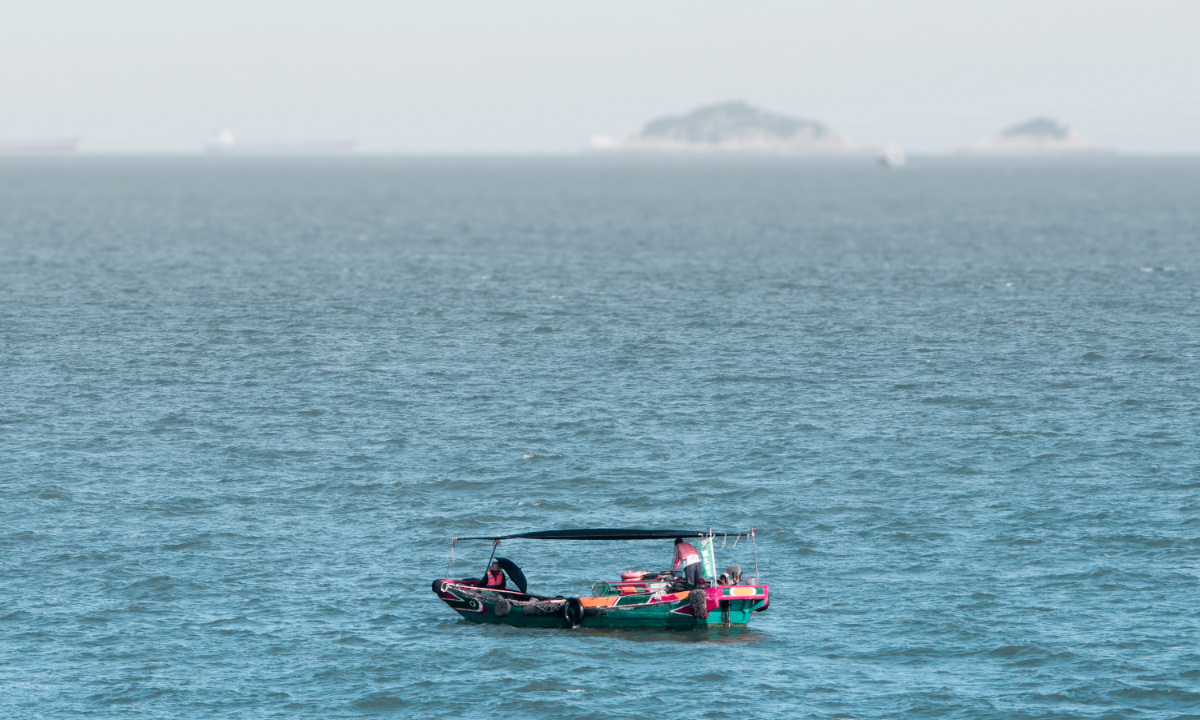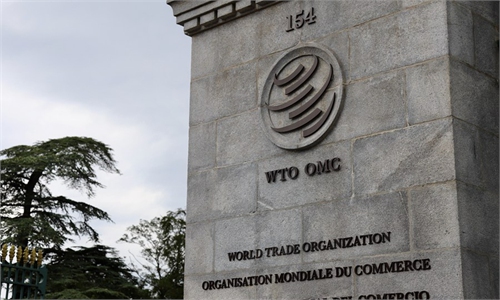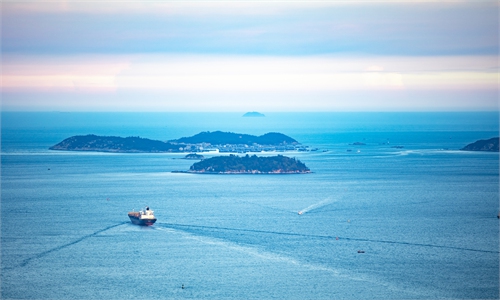‘International waters’ merely a unilateral colloquial term used by US Navy: experts

A fishing boat is seen in the Taiwan Straits in Xiamen, East China's Fujian Province, On June 21, 2020. Photo: VCG
There is no such thing as "international waters" on the United Nations Convention on the Law of the Sea (UNCLOS), Chinese Foreign Ministry spokesperson Wang Wenbin made it clear at a press conference on Monday. The US has replaced universally applicable rules of international law with unilateral rules of its own making. It is self-evident who the destroyer of international rules and order is, an international law expert said.
A Monday report from Bloomberg said that Chinese military officials in recent months have repeatedly asserted that the Taiwan Strait isn't international waters during meetings with US counterparts, generating concern within the Biden administration.
As a response to the US and its allies' claims that most of the Taiwan Straits are "international waters," Foreign Ministry spokesperson Wang Wenbin said that China enjoys sovereignty, sovereign rights and jurisdiction over the Taiwan Straits.
China firmly opposes other countries using the Taiwan Straits as an excuse to manipulate Taiwan-related issues and to threaten China's sovereignty and security, Wang added.
Taiwan is an inalienable part of China's territory, Wang said, noting that the Taiwan Straits range in width from about 70 nautical miles at narrowest and 220 nautical miles at widest. According to UNCLOS and Chinese laws, the waters of the Taiwan Straits, extending from both shores toward the middle of the Straits, are divided into several zones including?internal waters, territorial sea, contiguous zone, and the Exclusive Economic Zone. China has sovereignty, sovereign rights and jurisdiction over the Taiwan Straits. At the same time, it respects the lawful rights of other countries in relevant waters, he said.
US State Department spokesperson Ned Price said on Tuesday in an email to Reuters: "The Taiwan Strait is an international waterway, meaning that the Taiwan Strait is an area where high seas freedoms, including freedom of navigation and overflight, are guaranteed under international law."
He reiterated US concerns about China's "aggressive rhetoric and coercive activity regarding Taiwan" and said that the US "would continue to fly, sail and operate wherever international law allows, and that includes transiting through the Taiwan Strait."
However, Tian Shichen, a retired Navy captain and founder of the Global Governance Institution and director of the International Center for the Law of Military Operations, told the Global Times on Wednesday that professionals around the world can tell that the US has tried to muddle the waters about the issue. This exposes the true nature of the "rules-based international order" that the US has been talking about, Tian said.
Tian further explained that, first of all, there is no such term as "international waters" in international law. It is a "panacea" invented by the US as a non-contracting party to the UNCLOS to bypass its obligations under the Law and maintain its maritime hegemony.
"'International waters' is a military term used in the US Naval Commander's Manual," Tian pointed out.
In addition, when there are different understandings about the UNCLOS, the US has never referred to paragraph 3 of article 2 of the UN charter "by peaceful means to solve international dispute." The US is the only country in the world making up "freedom of navigation" plans and using military intimidation to challenge countries they consider has "excessive maritime claims", which fundamentally undermines the basic norms of the UN Charter, Tian noted.
"As a country that has not yet acceded to the 1982 UNCLOS, the US has substituted unilateral rules of its own making for universally applicable rules of international law," Tian said.
Earlier on Tuesday, Joanne Ou, spokesperson of Taiwan's "external affairs" authority, called the Chinese mainland's position a "fallacy." On Wednesday, the head of Taiwan's "executive body" Su Tseng-chang said the strait was by "no means China's inland sea."
Ma Xiaoguang, spokesperson for the Taiwan Affairs Office of the State Council, refuted on the same day that the Democratic Progressive Party authorities were "cooperating with external forces to hype up the issue."
"This harms the interests of compatriots on both sides of the Taiwan Straits and betrays the interests of the Chinese nation - it is despicable," Ma said.
Tian pointed out that by making the Taiwan Straits as "international waters," the US is trying to form the illusion that the Chinese mainland is pressing on the island, while ignoring the fact that "China has sovereign rights and jurisdiction over the Taiwan Straits and respects the lawful rights and interests of other countries in their waters."
In addition, although the Taiwan Straits are not "international waters," it is de facto used as an international navigation channel, according to Article 36 of the UNCLOS. Military vessels, including those of the US, shall enjoy freedom of navigation within their exclusive economic zones, but are subject to applicable coastal state regulations and due care obligations, Tian stressed.
China has never opposed the passage of foreign ships in this area, and has stressed that the Taiwan Straits are an important international waterway, Yuan Zheng, a deputy director and senior fellow of the Institute of American Studies, the Chinese Academy of Social Sciences, told the Global Times.
By calling the Taiwan Straits, where freedom of navigation is guaranteed, an area that has problem with freedom of navigation, the US aims to portray China as a rule-breaker, Tian noted.


